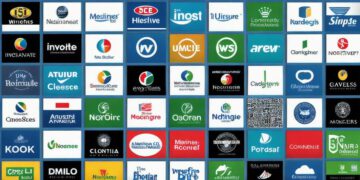Are you looking to start a business that’s grounded in technology? Do you want to understand the key features of technology-based business models and how they can benefit your business? Look no further! In this article, we will explore the various technology-based business models available and provide you with real-life examples and case studies.
Firstly, let’s define what a technology-based business model is. A technology-based business model refers to any business that relies on technology as its core product or service. This can include software development, e-commerce, data analytics, and much more.
One of the key features of technology-based business models is their ability to scale quickly. As your business grows, you can easily expand your technology infrastructure to accommodate the increased demand. This allows you to reach a larger customer base and generate higher revenue.
Another benefit of technology-based business models is that they offer greater flexibility in terms of location and work arrangements. With cloud-based technologies, employees can work remotely from anywhere in the world, allowing for more efficient use of resources and reduced overhead costs.
Now let’s take a look at some real-life examples of successful technology-based business models:
- Uber – The ride-sharing company has revolutionized the transportation industry by leveraging technology to connect drivers with riders in real-time. This business model has disrupted traditional taxi services and has allowed Uber to become one of the most valuable startups in the world.
- Airbnb – The online marketplace for vacation rentals has transformed the travel industry by allowing homeowners to rent out their properties directly to customers. Airbnb’s technology-based business model has created a platform that enables easy booking, payment, and communication between buyers and sellers.
- Shopify – This e-commerce platform has made it easy for small businesses to set up an online store and sell products or services. Shopify’s technology-based business model has provided a user-friendly solution that has helped over 1 million entrepreneurs launch their online businesses.
- Netflix – The streaming service has disrupted the traditional television industry by offering on-demand access to movies and TV shows for a monthly subscription fee. Netflix’s technology-based business model has allowed it to rapidly expand its content library and attract millions of subscribers worldwide.

In conclusion, technology-based business models offer numerous benefits such as scalability, flexibility, and disruption of traditional industries. By understanding the key features of these models and learning from successful examples, you can develop a strong foundation for your own technology-based business. Remember to always consider your target audience and conduct thorough market research before launching your business.









